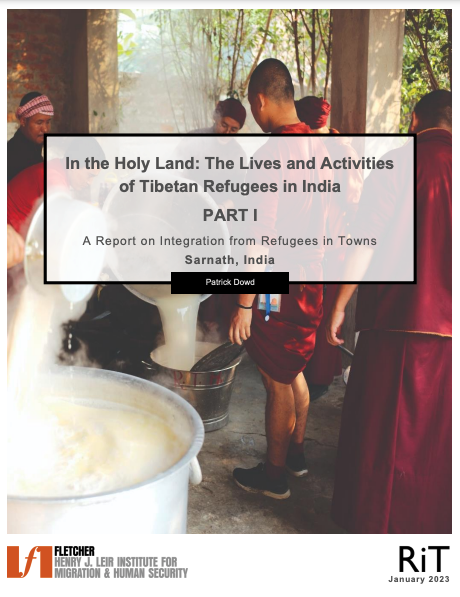In the Holy Land: The Lives and Activities of Tibetan Refugees in India, Part I

A NOTE FROM DR. KAREN JACOBSEN, RIT PRINCIPAL INVESTIGATOR
This is not our usual RIT report in that it was not written by a refugee researcher, but rather is based on a series of interviews conducted by a doctoral candidate, as described below. These Tibetan refugees living in northern India do not speak English, and the interviews, conducted in Tibetan, were a way to capture their experience for our English readers. The report is also different from our other RIT reports in that we have given somewhat more space to the refugee’s life in Tibet, and his journey and experience prior to arriving in Sarnath.
A NOTE ON EDITOR-TRANSLATOR POSITIONALITY AND METHODOLOGY
I am a doctoral candidate in the Department of Anthropology at the University of British Columbia, where my research focuses on the contemporary Buddhist life of the Tibetan language. Prior to my doctoral training in linguistic and socio-cultural anthropology, I worked with Tibetan-speaking communities in the Himalaya’s for several years, beginning as a Fulbright research scholar based in Dharamsala, India.
I wrote this report based on a February 23, 2022 Zoom interview with a Tibetan refugee living in Sarnath, India (pseudonym Thubten Dawa), where he works for the Sarnath International Nyingma Institute (SINI). Later, in summer 2022, I traveled to India to work at SINI, where I developed a closer relationship with him. The meals and many cups of tea we shared throughout the summer enabled me to clarify details of his story and revise this report.
Except for a handful of English and Hindi loanwords, all our communication occurred in Tibetan. Based on consultation with the refugee and SINI’s leadership we decided that I would write the report in the first-person with direct translations of his words. Thubten Dawa understood that parts of his story would need to be reordered and edited for clarity of understanding in English, but the experiences described, and the words used to describe them, are entirely his own.
While I am highly proficient in Tibetan, I clarified any points of confusion in the story through spoken and written communication with Thubten Dawa. Initially, this occurred through voice and written WhatsApp messages, and later through in-person follow-up interviews over the course of my summer at SINI. The information presented in this report has been rigorously reviewed multiple times to ensure the greatest fidelity to his experiences. At numerous points in the writing process, I sat beside him, laptop before us, and translated back to him in Tibetan what I had written in English. If there were any discrepancies or nuances in meaning lost in the translation, we worked together to correctly represent his experiences. The quotations in Tibetan show the actual words spoken by Thubten Dawa, serving as a reminder of the translated nature of the report.
The interview on February 23, 2022, and all subsequent conversations with Thubten Dawa occurred with free, prior, and informed consent. He understood the aims of this report, and my purpose in writing it, before he shared his story. On numerous occasions, he expressed his aspiration that by reading this story, “others will understand the importance of pure motivation and necessity to prioritize the welfare of others rather than one’s self.”
The author wrote both the background and the introduction in addition to editing and translating this report.
